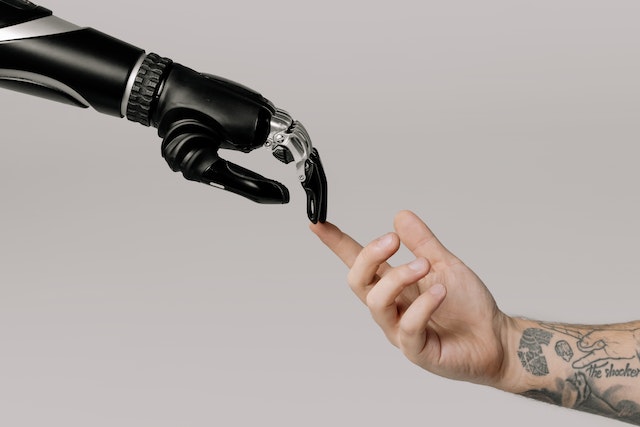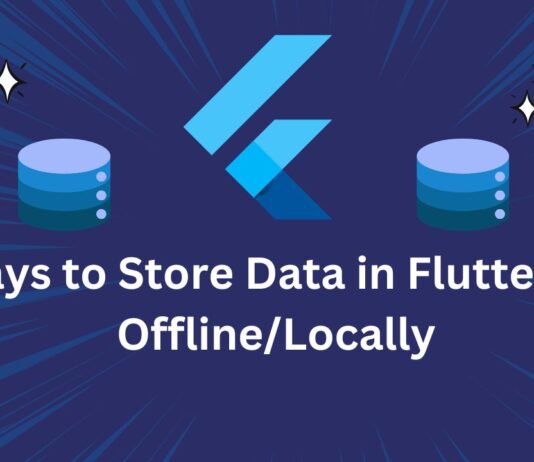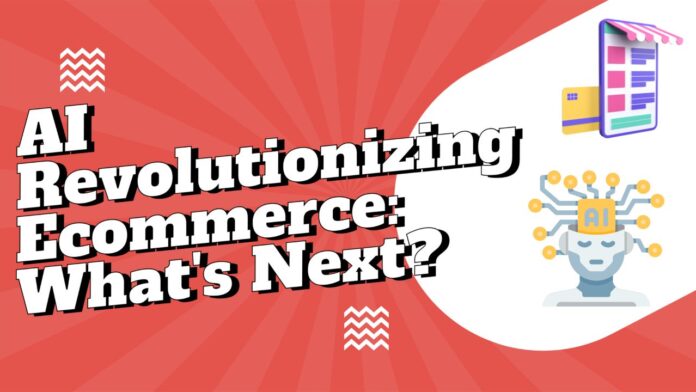Since its introduction, AI (Artificial Intelligence) has successfully found its applications in every industry and landscape. The ecommerce industry is no different. We have seen unprecedented growth of the ecommerce industry lately.
Some eye-opening facts and figures reflect this unprecedented evolution of the ecommerce industry.
Nearly 24 million ecommerce stores are active online. In 2021, the ecommerce sales grew by 27.6%. Moreover, in the same year, ecommerce sales saw a significant boom worldwide, and purchases worth $4.1 trillion were made online.
This huge figure accounted for 19% of the worldwide sales. The revenue of the worldwide e-commerce industry is expected to grow to $8.1 trillion by 2026.
While several reasons played a role in the evolution of the e-commerce landscape, you can’t overlook the role of AI in this entire phenomenon. The ecommerce landscape is based on technology, and ecommerce retailers want to get the most out of technology to ensure an excellent online shopping experience and an exceptional increase in revenue.
AI and its subsets like Machine Learning, NLP (Natural Language Processing), and Computer Vision are helping ecommerce retailers make it possible. The involvement of AI in the ecommerce landscape is already opening the gateway for us to the future. Thanks to AI, things that were considered impossible a few years back are now possible.
Here is how AI is shaping the future of the ecommerce landscape.
Visual Search
Visual search is the most obvious example of AI’s involvement in the ecommerce landscape. Customers often fail to find their desired products online through conventional search until they have all the necessary details. The voice search method may also fail to work in such a scenario. Conversely, the visual search method can help users find their desired merchandise easily. It is often observed that consumers like to take pictures of products they want to buy.
They can easily find the exact product online and the vendor selling it with the help of the image of merchandise. All they need to do is perform a reverse image search online. Performing an image reverse search will help them find the exact product and other products that fall in the same category with better pricing.
While reverse picture search utilities are available to help users find products, many ecommerce stores also offer the visual search feature to help users find their desired merchandise.
AI Chatbots
AI is not only limited to the visual search when it comes to its involvement in the AI landscape. AI has led to the development of NLP (Natural Language Processing), which enables computers to interact with humans and respond to them meaningfully. This NLP works behind AI chatbots that are available on ecommerce stores to respond to the queries of users. This application of AI has enabled ecommerce vendors to hire human resources for more complex human tasks.

In addition, AI chatbots are available to respond to queries 24/7, which means users can get quick answers without waiting for someone to view and answer their queries. This possibility helps ecommerce vendors ensure optimum user experience. Moreover, AI chatbots can also suggest various products. In case of complicated queries, these chatbots can connect customers to human customer support representatives capable of handling the matter more efficiently.
Automated Reminders
It is pretty frustrating for ecommerce retailers when a user spends significant time on a product page or adds a few products to the cart but leaves the site without performing the desired action, i.e., purchase. AI offers help to e-commerce vendors by letting them generate automated reminders for such users and enticing them to purchase products they have left in abandoned carts. These automated reminders are sent to users through email. The email copies sent as automated reminders feature captivating words.

These reminders can help users realize what they are actually missing by not purchasing the products. Moreover, these automated reminders may feature discount codes to compel them to visit the website again and reach the checkout page to complete the purchase. These automated reminders may also request feedback to enquire about the reasons behind the abandoned cart. Simply put, AI-backed automated reminders can help ecommerce retailers boost conversions.
Personalized Shopping Experience
Everyone likes special treatment while shopping for products from a brick-and-mortar outlet or an ecommerce store. Brick-and-mortar outlets hire sales executives who guide buyers about various products and recommend products based on their requirements, purchase history, and preferences. Online retailers can use AI and machine learning to boost their conversions. Many e-commerce retailers use it to increase their sales and achieve fruitful results.
AI and machine learning help e-commerce retailers understand the purchase patterns of existing users. Moreover, virtual shopping assistants are employed to understand the requirements of newcomers. An understanding of purchase patterns helps ecommerce retailers upsell and cross-sell products easily. This process impresses customers and helps e-commerce retailers increase their revenue. Hence, an AI-backed personalized shopping experience is a win-win solution for both parties.

![AWS Load Balancers with EC2 Instances – Complete Tutorial [2025] Overview image of AWS Load Balancer tutorial setup steps](https://protocoderspoint.com/wp-content/uploads/2025/06/AWS-Load-Balancer-741x486.png)














![AWS Load Balancers with EC2 Instances – Complete Tutorial [2025] Overview image of AWS Load Balancer tutorial setup steps](https://protocoderspoint.com/wp-content/uploads/2025/06/AWS-Load-Balancer-324x160.png)